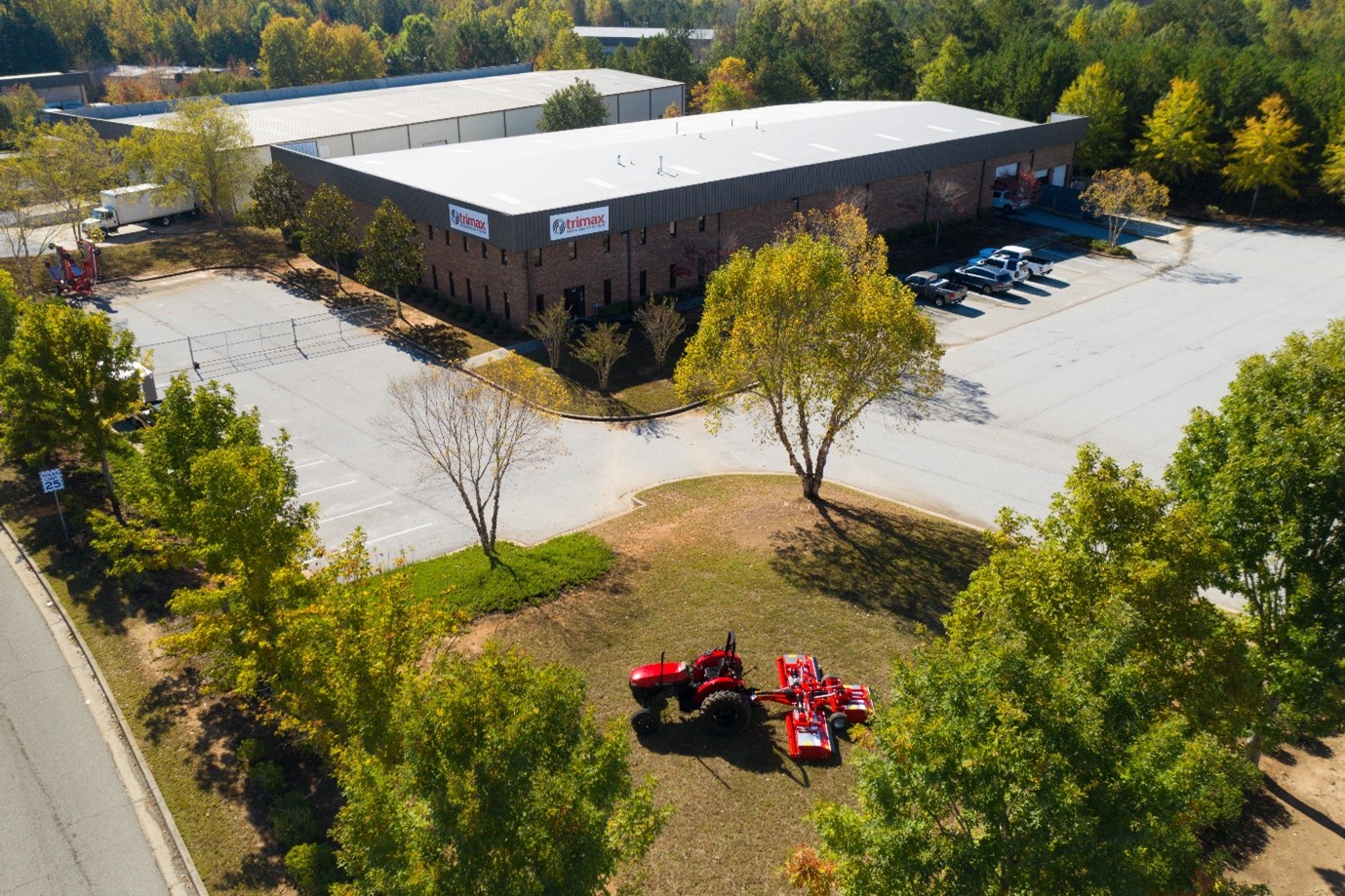New Zealand exporter Trimax manufactures high-quality commercial mowing technology that is poised to take over the grounds care market across the world. Specialising in a wide range of rotary and flail equipment, Trimax has created a benchmark worldwide for long-lasting reliability, simple usability and maintenance, and robust cutting performance for their customers in the mowing market. These mowers are categorically sold by application, with mowers purpose built for golf clubs, turf farms, sports fields, horticultural fields, and lifestyle plots. As a result, the majority of their customers are council centres, reservationists, farmers, and the professional segment of high-end golf courses. Trimax have even serviced England’s Windsor Castle and the US PGA Championship courses. To meet demand, Trimax has manufacturing facilities in New Zealand, the United States, and the United Kingdom. Combined, Trimax’s facilities have over 150 staff exporting their in-house designed mowing technology across North America, Australia, Europe, and South-East Asia. With such impressive capability, Trimax aim to become the face of the mowing industry with their innovative technology at the helm. If you’d like to learn more, see Trimax’s website here. As part of ExportNZ’s 50th Anniversary, Trimax CEO Michael Sievwright joined us for an interview to examine the organisation’s forty-year-old exporter story, the impact of the Global Financial Crisis (GFC) and COVID-19, and Trimax’s bright future in the exporting space. Of particular interest, we discuss Trimax’s customer-centric strategy towards innovation and Michael’s internationally scaled approach to leadership and culture.
Mowing Through International Markets – Trimax’s Exporter Story:
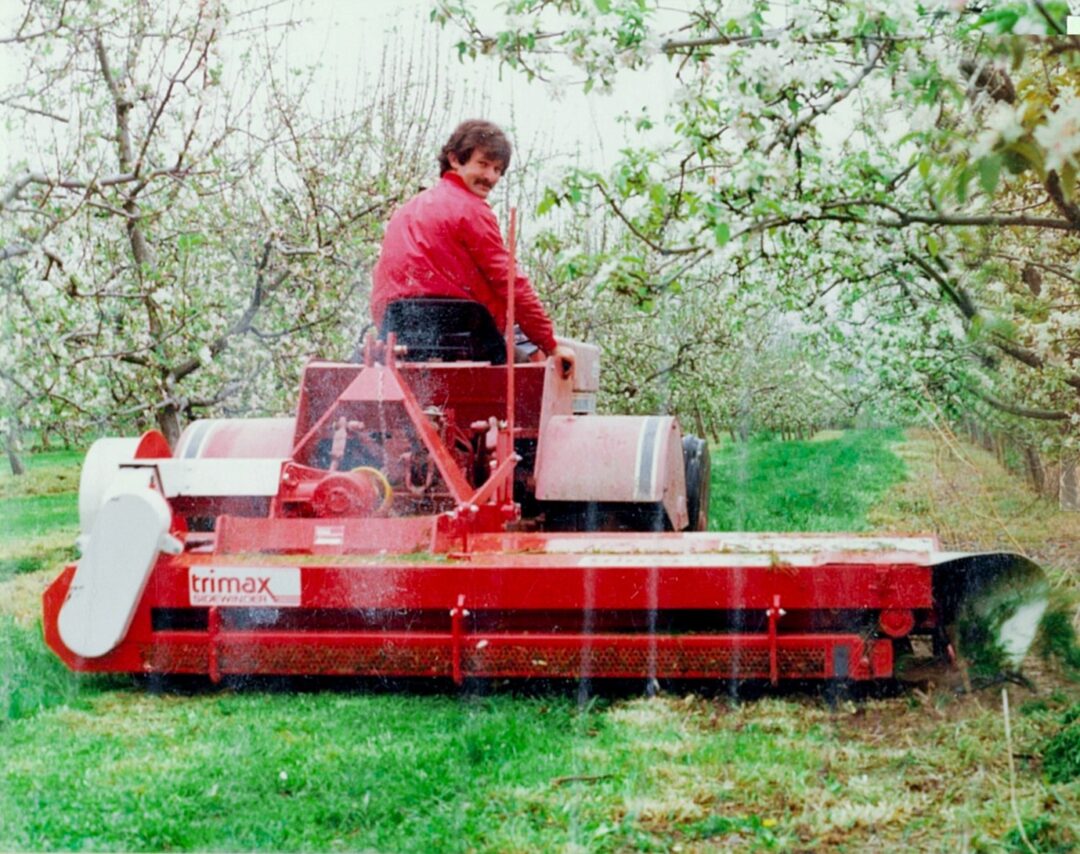
During the 1970s, the increasingly frantic demand for kiwifruit produce bloomed an entirely new industry in the Bay of Plenty. Large areas of pastures were turned into orchards almost overnight and the region became a competitive hub of kiwifruit cultivation. For Bob Sievwright, this drastic development in the regional economy presented a potentially lucrative opportunity to create a foundation for innovative agricultural products in the domestic market. Thus, Trimax was founded with their Gammaflail™ product at the helm of sales in 1981.
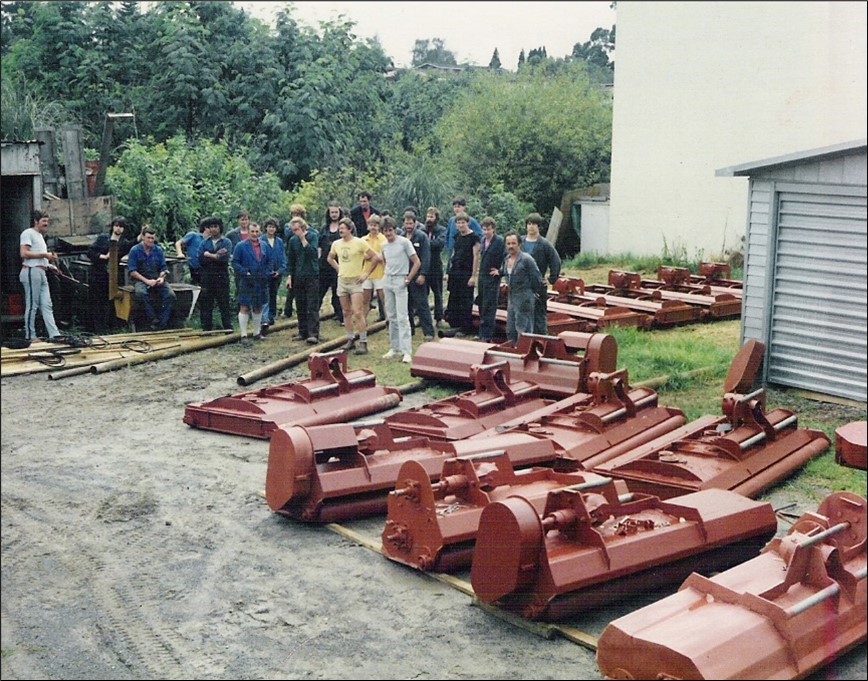
With years of international experience in the US at his back, Bob’s aspirations were always to become a leading kiwi exporter in the export market. From as early as 1983, Trimax begun its first exports to Australia with a dedicated research and development department created to ensure optimal market penetration. After securing the Australian markets longevity for Trimax’s mowing products, the organization moved into other strong markets in the UK followed by the US. Their subsequent exporting success in these markets was epitomised in their back-to-back ‘NZ Exporter of the Year’ awards in 1992 and 1993.
During this time, having boots on the ground to directly obtain information from local customers was central to developing in-market relationships. From these relationships, Trimax were able to innovate and continuously improve products to market requirements, enabling them to attract new customers and outperform competitors that had larger scale. In fact, Michael owes the opening of the distribution warehouse in the UK (1998) and office in the US (2005) to the decision to put boots in the market in the early days.
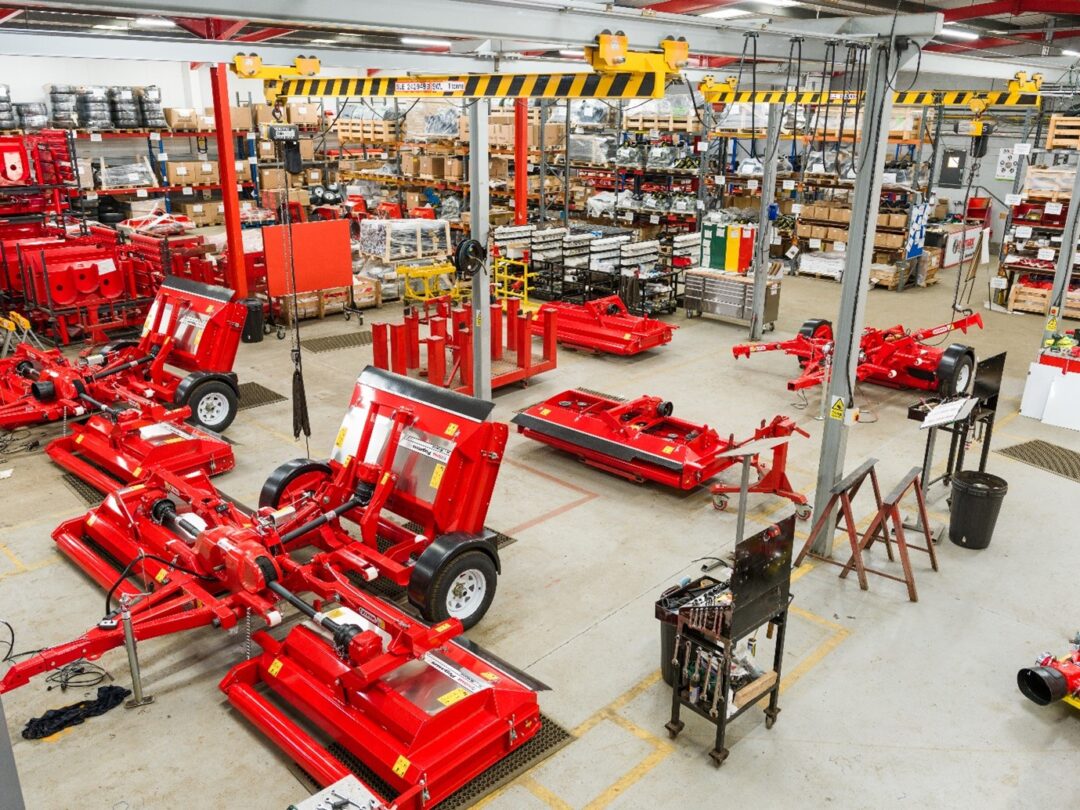
Michael explains that “Like any export business, there was a lot of learning and mistakes during these early years, but Trimax had the tenacity to get through it. The founders and early team really fought to fail and try again. For example, although they had started in the horticultural and agricultural sectors, they quickly learnt that the grounds care industry presented a lucrative opportunity to grow into. Being bold and taking action was core to their philosophy, and now the grounds care industry represents the majority of our business. In this regard, learning is absolutely key to adapting and emerging stronger in the highly competitive export market. This is why learning has its place as a core value in the organizational culture of Trimax… Don’t go into markets with a selling mindset, go into markets with a learning one.”
When asked what he would attribute to Trimax’s success, Michael says; “You can over plan things and never do it. Taking action doesn’t mean just firing a product out to the market. The key to our success has been researching and understanding the market deeply with a customer-centric focus that first and foremost prioritises the needs of the customer. Getting out there and talking to clients is central to understanding what’s happening at the coal face and a critical part of our success. I spend a lot of my time with customers to understand those nuances in the market and to reflect that understanding into our strategy. This isn’t just done on day one, this is a continuous process that requires attention every day to really stay in touch with our customers.”
Today, Trimax primarily operate in the export market with 95% of annual revenue hailing from large export markets. Of these, North America represents the largest growth market with over 14,000 serviceable golf courses in the US alone compared to only 800 courses in the UK. However, Michael asserts that this doesn’t mean that the UK or New Zealand is less of a priority. In fact, Michael believes that every market is highly valuable in ways other than purely the bottom-line. For example, while New Zealand represents a small proportion of sales, the domestic market remains a core part of learning and development for Trimax. Unlike other countries, New Zealand’s grass grows for all 12 months of the year. This makes New Zealand a perfect location for Trimax to test their products in its natural environment before exporting them to the world. As a result, Trimax’s often niche products are aptly prepared to scale, meet, and exceed the demands of the US market. In this regard, Michael highlights the unique advantages an organization can experience from diversifying its operations across different markets.
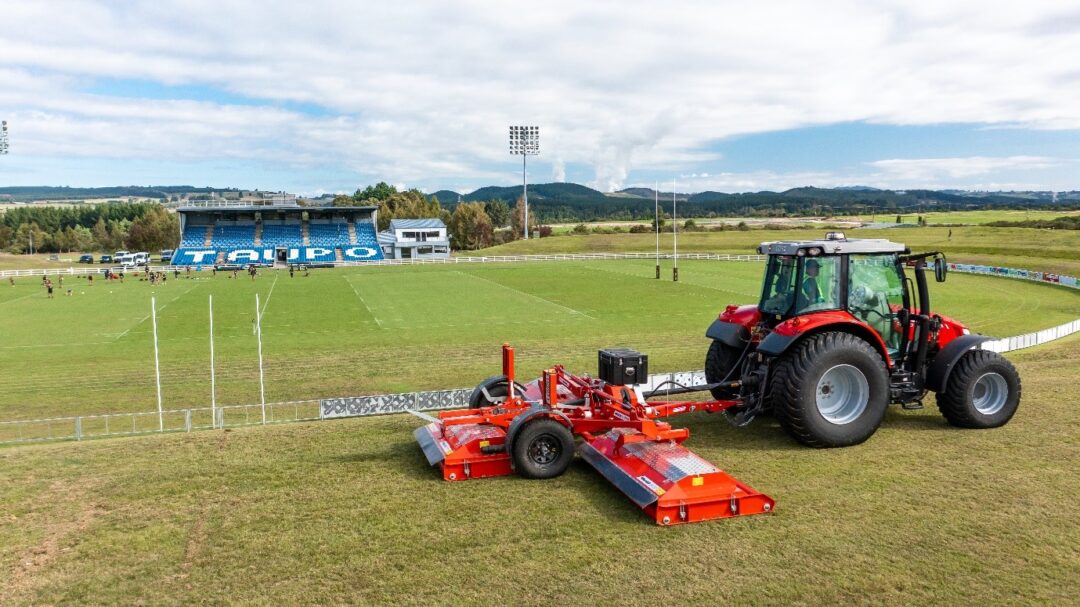
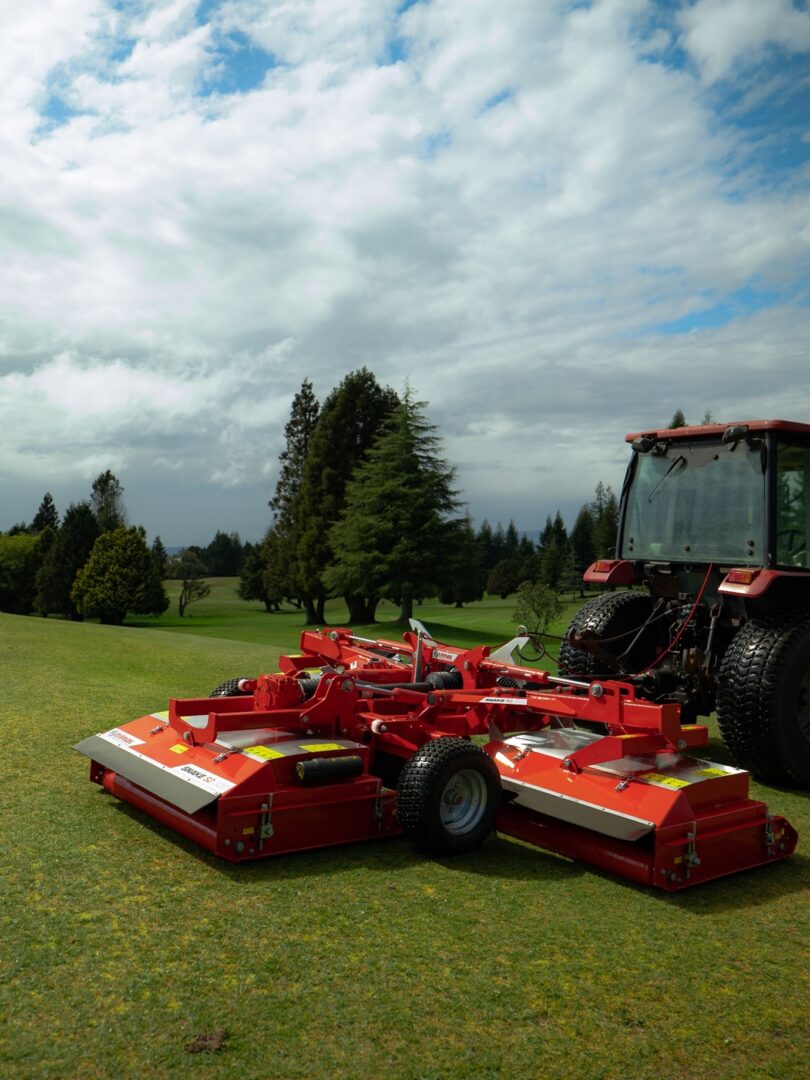
COVID-19 and the GFC – Mowing Away Problems:
Put simply, the GFC presented a tough challenge for Trimax to overcome. Unfortunately for the exporter at the time, their operations in the US were largely exposed to one sector that was closely connected to the housing market. As with anything that touched the US housing market, this meant that cashflow from many of their core customers had basically frozen overnight with defaulted payments. This was particularly disastrous for Trimax with much of their export operation focused exclusively on leveraging the US market with these customers. However, in alignment with their tenacious values, the entrepreneurial Kiwi exporter identified a key lesson from the GFC to emerge stronger and more resilient against future instability. Trimax learnt that diversifying into different sectors within growth markets was essential to limit their operations exposure to risk. After penetrating a new market, this means leveraging their initial market position to create a cross-sectioned customer base spanning across multiple industries. To do so, Trimax dedicates resources towards extensively researching each market to find and target the segments that are most attainable. On a larger scale, therefore Trimax has further invested resources into entirely different markets outside of the US, particularly in the European market.
COVID-19’s impacts to Trimax was tantamount to those experienced by businesses across the country and world. Supply chain and logistics issues, travel prevention, staff isolations, and trade route costs tripling in some areas had completely shocked the export world into highly restricted terms of operation. With so many causes to market instability, Trimax drastically veered their strategy to adapt and continue operating through COVID-19’s unpredictable effects. Of these, two strategic changes stand out for having ensured Trimax emerged stronger from COVID-19.
Firstly, overseas staff had to be empowered into roles with more responsibility to ensure their branch continued operating according to the state of local conditions and legislation. As a result, Michael explains that “Training and giving our great staff more freedom to get on with it has built a great team overseas. Each and every staff member stepped up to the mark which has seen our capability and resilience really build up from the COVID experience.” However, while their business structure has positively benefitted, Michael also highlights the negative effects COVID-19 has had on mental health from a staff point of view. “Multiple lockdowns over a multiple years, meant staff were facing all sorts of personal challenges, it meant as a company we had to be really flexible and supportive to make sure the wellbeing of our staff was first priority”.
Secondly, Trimax have remotely procured new factories in the US to produce and hold more inventory as buffering stock against supply chain delays and future risks to production. Although the effects of this change are not entirely known, we suspect that diversifying production, like market segments, will ensure Trimax avoid putting all their eggs in one basket. Thus, Trimax are more than adequately prepared to continue growing into the increasingly lucrative North American market.
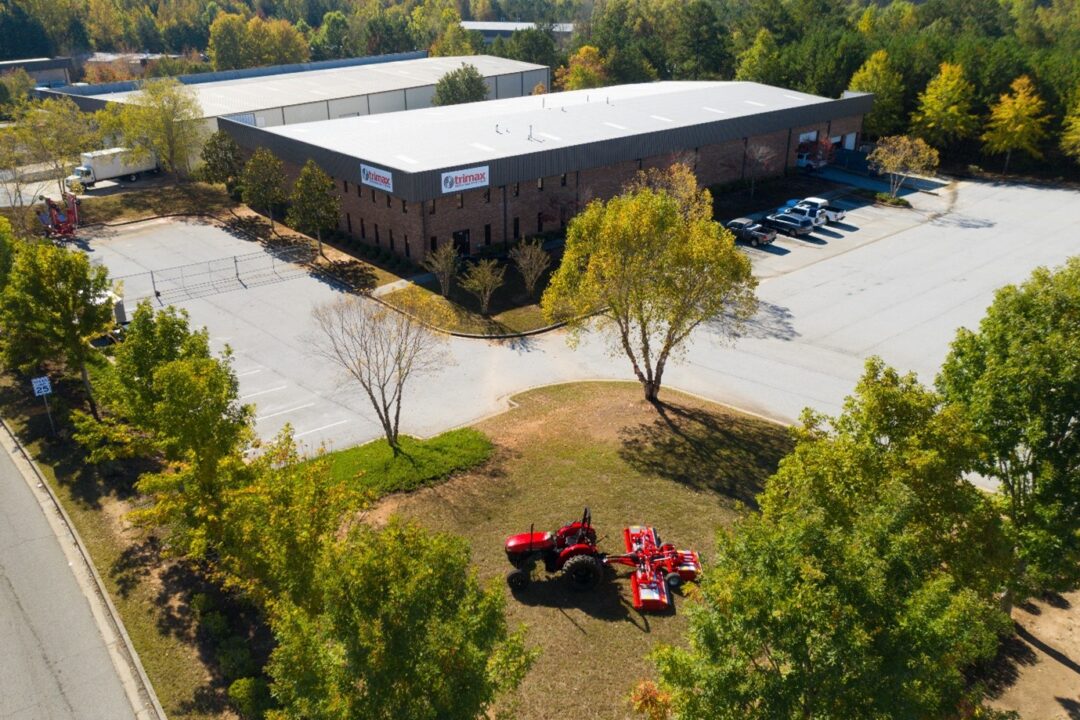
The Promising Future of Trimax:
The future of Trimax is as exciting as it is revolutionary for the grounds care industry. Michael tells us that they’re currently looking to shift their products from mechanical to electrical designs due to its possible improvements to mowing efficiency and safety systems. Additionally, automation is expected to play an industry-leading role in their products and manufacturing process to ensure Trimax are continuously advancing industry standards with next generation solutions. At the same time, New Zealand will remain Trimax’s design and manufacturing hub with sources of manufacturing gradually increasing overseas.
The sports field market also shows healthy signs of being a future target for Trimax and their innovative grounds care products; “With a growing market in sports fields and recreational investments, we want the sports industry to be a market that we can safely back and support into the future. We’re still scratching the surface of this market and we have a lot more range we need to develop on to successfully penetrate the market… While we’re not sure where the market will take us, we are excited to see how the market will shape in the coming years.” When asked what the biggest uncertainty was with getting to 2032, Michael tells us “Macro-economic factors are always the biggest uncertainty that we are cautious of. We can adapt to macro-economic changes and prepare against them, but we cannot control them. For example, the cost of steel has gone up by 60-70 percent in the last 12 months. The best way for us to prepare against these risks is to ensure that our five-year strategies are clear and protected with contingency plans.”
A Borderless Organizational Culture – Michael’s approach to leadership:
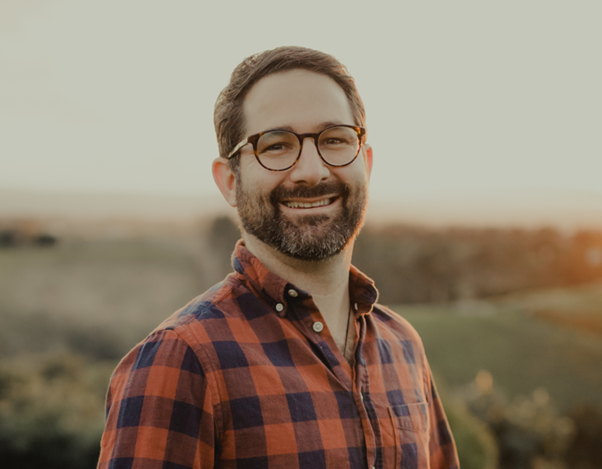
As the founder’s son, Michael has always been intrinsically tied to Trimax’s outcomes. Beginning in the organization’s procurement and market development team, Michael spent significant time in the UK to personally engage with the needs of current and future British customers. After a hiatus in the UK, Michael returned to Trimax to undertake the General Manager and eventually becoming the CEO. During this time also living in the US market to support building the team there. By working across multiple roles in different areas of the business, Michael gained a comprehensive understanding of the processes and people that were central to the organization’s abilities. This unique insight has enabled Michael to foster a values-driven organizational culture that continues to expand the business across the world. Michael explains that “The ability for us to effectively scale in markets is determined by our ability to build the right people that share Trimax’s culture and the vision. This is my job – to build a great team of exporters. We’ve found that when purpose between people and the organization are aligned, employees achieving their own goals will naturally help the organization achieve ours.”
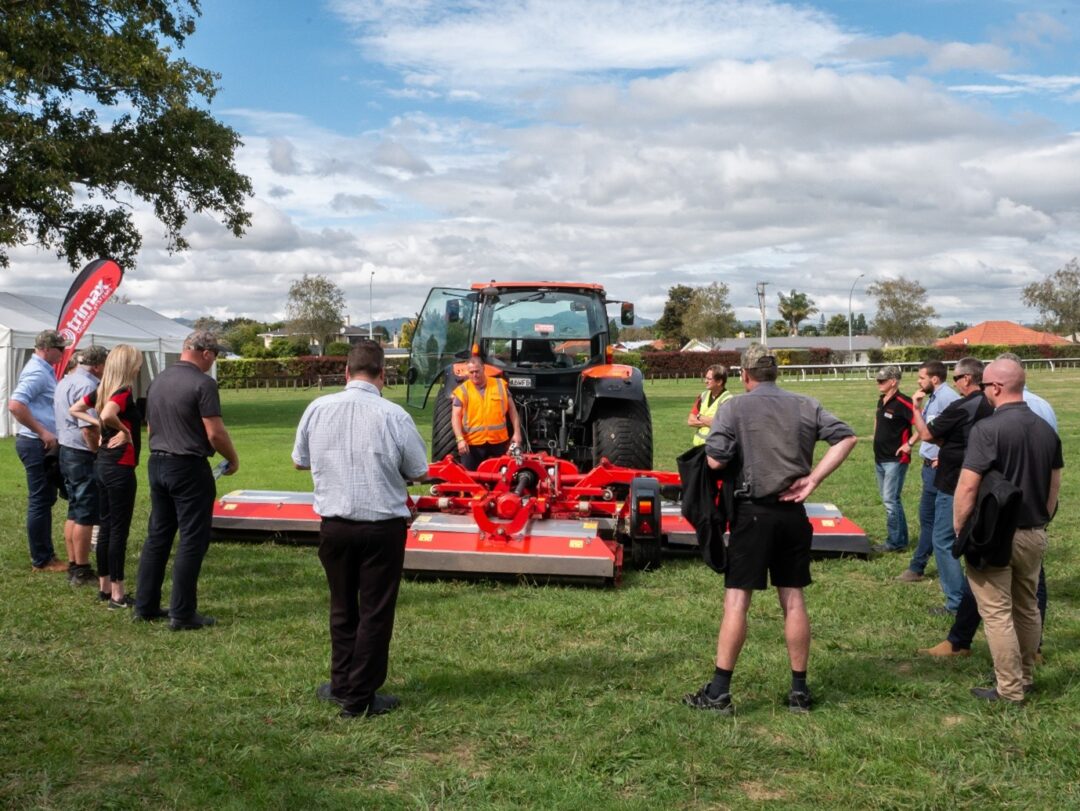
These organizational values are…
- Focus on customer success.
- One team.
- Be curious and humble.
- Do the right thing.
- Be bold and take action.
- Find a better way.
Leading by example has guaranteed that Trimax’s culture is effectively implemented and streamlined across a variety of different international contexts and potentially conflicting cultures. “Living and breathing the culture every day with the right leadership is important to encouraging that transnational culture adoption. This is probably why we haven’t historically struggled too much on culture as we’ve had the right leadership spending time with staff to build relationships and ensure they are treated well… The great thing about our values is that they are already very familiar to people and practiced by many in everyday life. In effect, this means that our values create a basis for what we expect behaviour to look like while still leaving room for our people to act according to their own judgements.”
Special acknowledgement: James O’Riley (a bright young 2nd year Otago University student studying Management, History, Politics) interviewed exporters over the last few months. James has written some excellent pieces for us and we thank him for his ongoing contribution.

